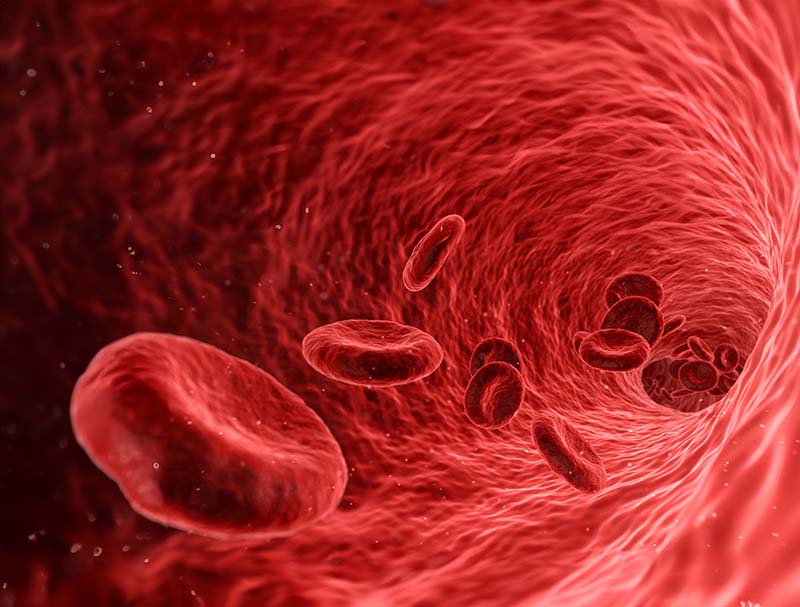You probably know oysters as the go-to choice for a romantic dinner, but these ocean treasures have another superpower – oysters are good for weight loss! That’s right, oysters are more than just a fancy date night treat; they’re a powerhouse for your health goals.
In this blog, we’re going to explore the unexpected side of oysters. We’ll break down the science in a simple, fun way, showing you exactly how these little sea wonders can help you stay in shape. Plus, we’ll give you some handy tips on how to include them in your diet.
Related articles
- Are Pears Good for Weight Loss? Uncovering the Diet Benefits.
- Celery Juice for Weight Loss: Slimming Down Made Easy.
- Is Salmon Good for Weight Loss? The Superfood Truth.
1. Are Oysters Good For Weight Loss?
Oysters are a great pick if you’re looking to lose weight. They don’t have many calories but are full of protein, which keeps you feeling full and helps keep your calorie count down. Oysters also have omega-3 fatty acids, good fats that can reduce swelling in the body and might even help you lose weight.
Studies show that eating lots of protein, including oysters, can really help with weight loss and making your body leaner. Just remember, oysters do have some fat, so eat them in moderation as part of a balanced diet.
Tip: When you eat oysters, pay attention to how fresh they are and how they’re cooked. Grilled or steamed oysters are a healthier choice than fried ones, helping you get the benefits without too many extra calories.

2. Nutritional Content of Oysters
Wild eastern oysters are a powerhouse of nutrition. In every 100 grams, they pack a variety of nutrients as shown in the table below:
|
Nutrient |
Amount |
|
Calories |
51 calories |
|
Protein |
5.71 grams |
|
Fats |
1.71 grams |
|
Carbohydrates |
2.72 grams |
|
Niacin (Vitamin B3) |
7% RDI |
|
Vitamin B12 |
364% RDI |
|
Iron |
26% RDI |
|
Magnesium |
4% RDI |
|
Phosphorus |
8% RDI |
|
Zinc |
354% RDI |
|
Copper |
317% RDI |
|
Manganese |
13% RDI |
| Selenium |
36% RDI |
*RDI: Recommended Daily Intake
These nutrients make oysters a beneficial food, especially notable for their high amounts of Vitamin B12, Zinc, and Copper. Along with these, oysters contain omega-3 fatty acids, which are good for heart health. So, including oysters in your diet means you’re getting a wide range of essential nutrients that contribute to overall health.
3. Other Potential Health Benefits of Oysters
Oysters are not just a delicacy but a nutritional powerhouse offering a range of health benefits. Here are some of the additional advantages of incorporating oysters into your diet:
Aphrodisiac Properties
The legendary lover, Giacomo Casanova, might have been onto something when he praised oysters for boosting libido and sexual performance. Oysters are packed with zinc, a mineral crucial for sexual health, particularly in men where it’s linked to combating impotence and erectile dysfunction. Women also benefit, as zinc plays a role in embryonic development.
Abundant in Zinc
Oysters boast a higher zinc content per serving than any other food. A few medium-sized oysters can fulfill your daily zinc needs, essential for immunity, wound healing, and vision protection. As a healthier alternative to red meat, oysters provide zinc in a lean and beneficial form.

Supportive of Heart Health
As part of the seafood family, oysters contribute to heart health. Regular seafood consumption is linked to reduced heart disease risks, thanks to lean proteins and omega-3 fatty acids in oysters. Potassium present in oysters also aids in lowering blood pressure.
Accelerates Healing
The zinc in oysters is a healing champion, crucial for wound healing and immune defense against infections. It’s vital for growth and maintaining bodily functions across all age groups.
Enhances Blood Circulation
Iron-rich oysters can help meet daily requirements, vital for preventing anemia and its associated symptoms like fatigue and cognitive issues. Iron is crucial for forming red blood cells, ensuring efficient oxygen distribution throughout the body.

Fosters Healthy Bones
Oysters are rich in minerals like calcium, phosphorus, and zinc, contributing to stronger bones and reducing the risk of conditions like osteoporosis. Some studies suggest that oyster-based products may even help treat bone-related issues.
Possesses Unique Antioxidants
Oysters contain unique antioxidants like DHMBA, supporting brain functions like memory and learning, and protecting the liver. Selenium, another antioxidant in oysters, helps prevent chronic diseases and supports overall health.
Boosts Immune Function
The high zinc content in oysters is a boon for the immune system. Regular consumption can help keep your immune system robust and might shorten the duration of colds.

3. Possible Health Hazards Associated with Oysters
While oysters are a nutritional treasure, offering a plenty of health benefits, there are certain risks and considerations to be mindful of:
- Vibrio Bacteria Contamination (Vibriosis): Raw oysters are a common source of vibriosis, an infection caused by Vibrio bacteria. This can lead to severe illness and even death, especially with the more dangerous Vibrio vulnificus strain. The risk of vibriosis is higher in warmer waters and during peak summer months. While there are safeguards for oyster production, the safest way to avoid vibriosis, as per the CDC, is to avoid eating raw or undercooked oysters.
- Other Food Poisoning: Oysters can also be vectors for other pathogens like Norovirus, Hepatitis A, and Salmonella, leading to foodborne illnesses. These contaminants are present in the water and can be ingested by the oysters. Proper cooking is the most effective way to mitigate these risks.
- Shellfish Allergy: While shellfish allergies are more common with crustaceans (like shrimp and crabs), some individuals might also be allergic to mollusks, including oysters. While cross-reactivity is relatively low, there is still a risk of mild to severe allergic reactions.
- Interactions with Medications: Due to the high zinc content in oysters, they might interact with certain medications like antibiotics and penicillamine (used for rheumatoid arthritis). To avoid any potential negative interactions, it’s recommended to consume oysters a few hours apart from these medications.
- Risks for Immunocompromised Individuals: People with weakened immune systems should be particularly cautious. Conditions like diabetes, HIV, liver disease, and others increase the risk of severe illness from consuming raw or undercooked oysters. Contrary to popular belief, adding hot sauce, lemon juice, or consuming alcohol with oysters does not kill harmful bacteria.
It’s important to be aware of these potential risks and consume oysters responsibly. Opting for cooked oysters, ensuring they come from reputable sources, and being mindful of individual health conditions can help mitigate these risks and allow you to enjoy oysters safely.

Conclusion
In conclusion, oysters are indeed good for weight loss, offering a unique blend of nutritional benefits that can enhance your diet and overall health. From their low-calorie profile to their rich content of proteins and minerals, oysters are more than just a romantic delicacy; they’re a robust addition to any health-conscious eater’s menu.
We hope you’ve found this deep dive enlightening and are perhaps even inspired to incorporate oysters into your own weight loss journey. Share your experiences and success stories with us and explore more insightful topics by visiting our other blogs at HealthConnect. Here’s to your health and discovering the power of oysters!

Dr. Joyce Slater: Your Guide to Informed Health Choices
Dr. Joyce Slater shines as a distinguished expert in the field of nutrition and public health. Contributing her vast expertise to HealthConnectbc, she embodies a deep-seated passion for enhancing public well-being. As a respected figure in her field. Dr. Slater’s academic journey and professional achievements are nothing short of inspirational.
Holding a significant position as a researcher and educator, Dr. Slater has delved deeply into the intricacies of food literacy and nutritional science. Her work, prominently featured in numerous esteemed scientific publications, underscores her dedication to expanding our understanding of food’s role in health and society.
At the heart of Dr. Slater’s professional ethos is a profound desire to positively impact individual lives through education and research. She often says, “Empowering people with the knowledge to make healthier choices is the most rewarding aspect of my work.” This principle is the cornerstone of her involvement with HealthConnectbc, where she strives to provide reliable and practical health advice.
Dr. Slater’s contributions to HealthConnectbc are multifaceted: academically, she offers insights into the complex world of nutrition and health, enhancing both public understanding and professional practices. Additionally, she is instrumental in guiding and inspiring the next generation of health professionals, thus fostering future excellence in the field.
Juggling rigorous research with her educational duties, Dr. Slater demonstrates an unwavering commitment to her profession. Her approachable nature and genuine concern transcend the confines of academia, touching the lives of everyone she interacts with. Dr. Slater looks forward to continuing her journey of discovery and education, dedicated to the ongoing improvement of public health and nutrition.
At HealthConnectbc, Dr. J. Slater is not just a contributor; she is a guiding light, dedicated to enlightening and motivating individuals towards a healthier and more informed lifestyle.
PUBLISHED ARTICLES
- Food literacy competencies: A conceptual framework for youth transitioning to adulthood (2018)
- Self-perceived eating habits and food skills of Canadians (2016)
- Challenges to acquiring and utilizing food literacy: Perceptions of young Canadian adults (2016)
- Socio-demographic and geographic analysis of overweight and obesity in Canadian adults (2009)
- Sustainable well-being: Concepts, issues, and educational practices (2014)

